Constipation is a common digestive disorder that affects people of all ages, leading to discomfort and affecting the quality of life. This article dives deep into understanding constipation, its causes, natural remedies, prevention strategies, and when to seek medical treatment.
Table of Contents
Introduction
Constipation is more than just an occasional inconvenience; it’s a signal from your body that something is off balance. Whether due to diet, lifestyle, or stress, understanding the underlying causes is the first step towards relief.
The Science of Constipation
Physiological Aspects
At its core, constipation involves the slow movement of stool through the colon. The longer the stool remains in the colon, the more water is absorbed back into the body, making the stool hard and difficult to pass. This process is influenced by the muscle contractions of the colon, known as peristalsis, which help to move the stool toward the rectum.
Causes of Constipation
The causes of constipation can be multifaceted, including:
- Dietary Habits: A diet low in fiber is a common culprit. Fiber adds bulk to the stool and helps keep it soft, making it easier to pass.
- Hydration: Adequate fluid intake is crucial. Insufficient water consumption can lead to harder stools.
- Physical Activity: A sedentary lifestyle can decrease bowel motility, leading to constipation.
- Medications: Certain medications, including painkillers, antidepressants, and iron supplements, can cause constipation as a side effect.
- Age and Health Conditions: Constipation becomes more common with age and can be symptomatic of various health conditions, such as diabetes, thyroid disorders, and neurological conditions.
The Gut-Brain Connection
The relationship between the gut and the brain, known as the gut-brain axis, plays a significant role in digestion and bowel movements. Stress and emotional well-being can directly affect gut function, leading to conditions like constipation. The enteric nervous system, often referred to as the “second brain,” governs the function of the gastrointestinal system and can be influenced by stress and psychological factors, highlighting the importance of managing stress for maintaining digestive health.
Dietary and Lifestyle Interventions
Given the impact of diet and lifestyle on constipation, several interventions can help prevent or alleviate this condition:
- Fiber Intake: Consuming a diet rich in both soluble and insoluble fiber can improve stool consistency and frequency.
- Hydration: Drinking plenty of water and fluids can soften stools and promote regularity.
- Regular Exercise: Physical activity can stimulate the movement of the colon, reducing the time it takes for the stool to pass through.
- Routine: Establishing a regular toileting routine can help encourage bowel regularity.
Medical Treatments
When dietary and lifestyle changes are not enough, medical treatments may be necessary. These can include:
- Laxatives: Various types of laxatives work by softening the stool, stimulating the bowel, or increasing stool bulk.
- Prescription Medications: For chronic constipation, doctors may prescribe medications that draw water into the intestines or stimulate bowel movements.
- Biofeedback Therapy: This technique helps patients retrain the muscles involved in defecation.
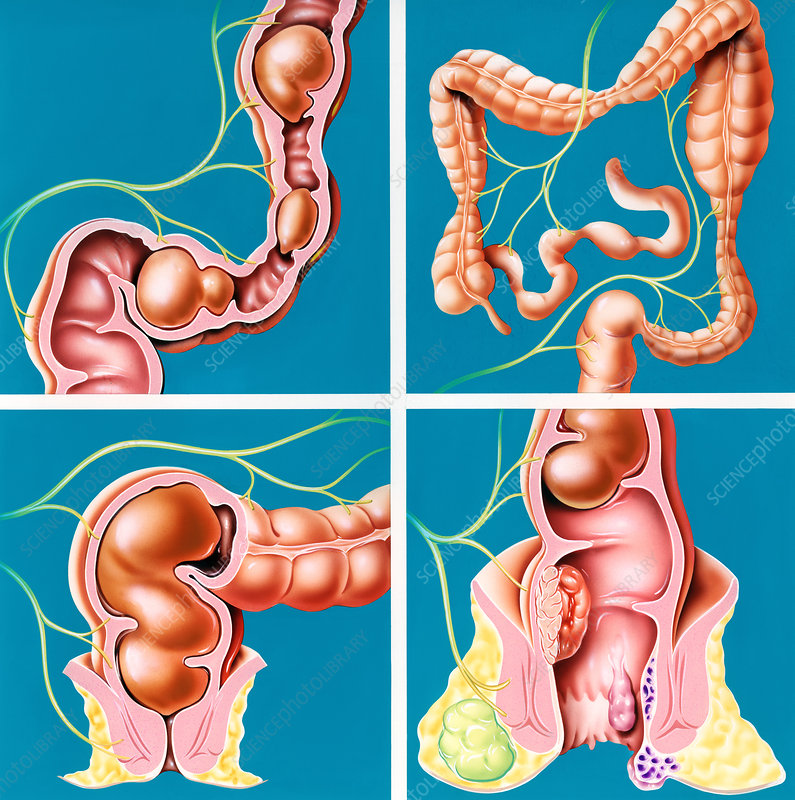
The Gut-Brain Connection
Understanding the Gut-Brain Axis
The gut-brain axis is the complex network through which the gut and brain communicate. This network includes the central nervous system (CNS), the enteric nervous system (ENS) of the gut, and the neuroendocrine and immune systems. The communication occurs through various pathways, including neural (via the vagus nerve), hormonal (via gut hormones), and immunological (via cytokines) mechanisms.
The Role of Gut Microbiota
A key player in the gut-brain connection is the gut microbiota, the vast community of microorganisms living in our digestive tracts. These microbes have a profound impact on gut health and function, and emerging research suggests they also influence brain health and behavior. The gut microbiota can produce neurotransmitters, such as serotonin and gamma-aminobutyric acid (GABA), which can affect mood and emotions. It also plays a role in modulating the immune system, which can influence brain function indirectly.
Impacts on Health and Disease
The gut-brain axis has been linked to various health conditions and diseases, including:
- Digestive Disorders: Conditions like irritable bowel syndrome (IBS) and inflammatory bowel disease (IBD) have been associated with alterations in the gut-brain axis, including changes in gut microbiota and increased sensitivity of the gut to stress.
- Mental Health: Research suggests a strong link between gut health and mental health, with imbalances in the gut microbiota being linked to anxiety, depression, and other psychiatric disorders. The concept of “psychobiotics” has emerged, referring to probiotics that could potentially improve mental health by influencing the gut-brain axis.
- Neurological Disorders: There’s growing evidence that the gut-brain axis may also play a role in neurodegenerative diseases like Parkinson’s and Alzheimer’s, with gut microbiota composition potentially influencing the risk and progression of these diseases.
Influencing Factors
Several factors can affect the gut-brain connection, including:
- Diet: The composition of the diet can influence gut microbiota and, consequently, the gut-brain axis. High-fiber, plant-based diets are beneficial for gut health, while diets high in processed foods can negatively affect gut microbiota.
- Stress: Chronic stress can impact gut health and microbiota composition, which in turn can influence mood and cognitive function via the gut-brain axis.
- Antibiotics and Medications: Antibiotics can disrupt the balance of gut microbiota, potentially affecting the gut-brain communication.
Strategies for a Healthy Gut-Brain Axis
Promoting a healthy gut-brain connection involves several strategies:
- Balanced Diet: Consuming a diverse, fiber-rich diet that includes plenty of fruits, vegetables, whole grains, and fermented foods can support healthy gut microbiota.
- Manage Stress: Engaging in stress-reduction techniques such as meditation, exercise, and sufficient sleep can help maintain a healthy gut-brain axis.
- Probiotics and Prebiotics: Supplementing with probiotics and prebiotics can help support the growth of beneficial gut bacteria, potentially influencing brain health and mood.
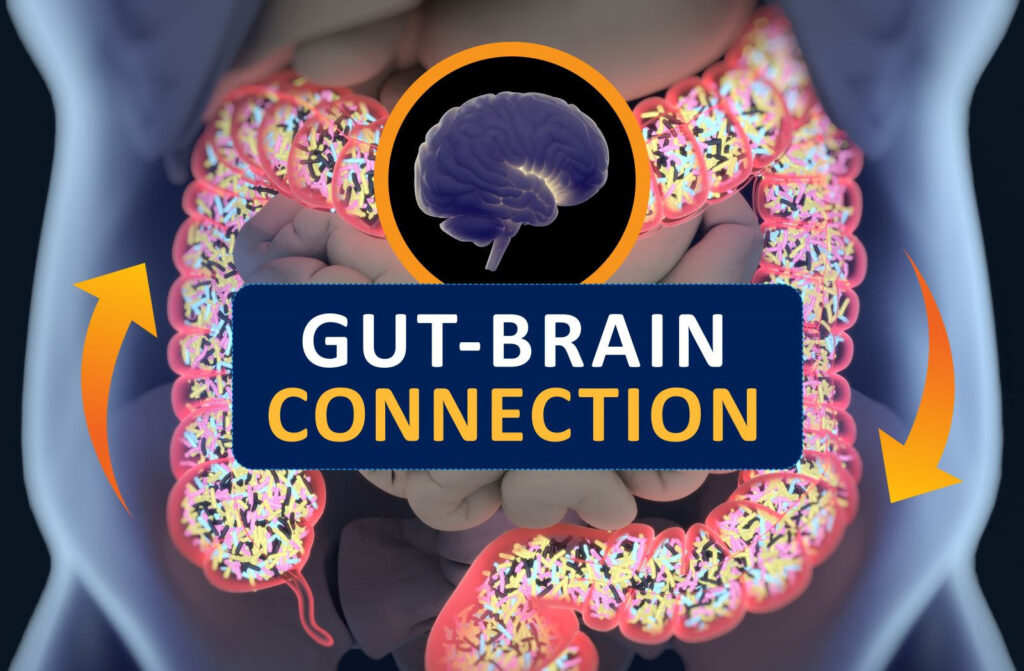
Physical Activity and Constipation
How Physical Activity Affects Digestion
Exercise contributes to better digestive health by enhancing the speed at which food travels through the large intestine, reducing the amount of water absorbed from the stool back into the body. This process can lead to softer stools that are easier to pass. Additionally, aerobic exercise increases the breathing and heart rate, which helps to stimulate the contraction of intestinal muscles. These contractions are crucial for moving stools efficiently through the digestive system.
Types of Exercise Beneficial for Constipation
While almost any form of physical activity can help improve bowel movements, certain types of exercise are particularly beneficial for preventing and alleviating constipation:
- Aerobic Exercises: Activities that raise your heart rate, such as walking, jogging, biking, and swimming, are excellent for stimulating gut motility.
- Strength Training: Incorporating strength training exercises can also support digestive health, as building muscle mass helps improve overall body functions, including digestion.
- Yoga and Pilates: These exercises are not only good for stress reduction but also include positions and movements that can help facilitate bowel movements by massaging internal organs, including the intestines.
Recommended Physical Activity Levels
The amount of physical activity needed to prevent or alleviate constipation can vary from person to person, but general guidelines suggest:
- Adults: At least 150 minutes of moderate-intensity aerobic activity, such as brisk walking, or 75 minutes of vigorous-intensity activity, such as running, spread throughout the week. Muscle-strengthening activities on two or more days a week that work all major muscle groups are also recommended.
- Children and Adolescents: At least 60 minutes of physical activity each day, including activities that strengthen muscles and bones.
Starting an Exercise Routine
For individuals who are not accustomed to regular physical activity, it’s important to start slowly to avoid injury and ensure consistency. Here are some tips for getting started:
- Begin with Light Activities: Start with light activities like walking or gentle yoga and gradually increase intensity and duration.
- Set Realistic Goals: Setting achievable goals can help maintain motivation and make exercise a regular part of your routine.
- Find Enjoyable Activities: Engaging in physical activities that you enjoy can make it easier to stick to a regular exercise schedule.
- Listen to Your Body: Pay attention to your body’s signals and adjust your activity level accordingly to avoid overexertion.
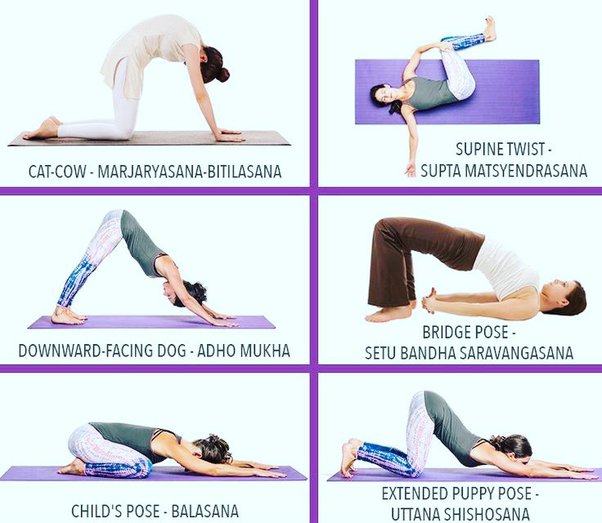
Natural Remedies
Dietary Fiber
Fiber plays a pivotal role in digestive health. It increases the bulk and softness of the stool, making it easier to pass. There are two types of dietary fiber:
- Soluble Fiber: Dissolves in water to form a gel-like substance, which helps soften stools. Examples include oats, apples, carrots, and beans.
- Insoluble Fiber: Does not dissolve in water and adds bulk to the stool. Sources include wheat bran, vegetables, and whole grains.
Adults should aim for 25 to 30 grams of fiber per day from foods, not supplements, to prevent and treat constipation.
Hydration
Adequate fluid intake is essential for preventing constipation. Water helps to soften the stool, making it easier to pass. The recommended daily fluid intake varies depending on age, gender, and activity level, but a general guideline is about 8 glasses (64 ounces) of water per day. Warm liquids, especially in the morning, can also stimulate bowel movements.
Regular Exercise
Physical activity increases blood flow to the digestive system and helps to stimulate intestinal activity. Even light exercise such as walking can be beneficial. Aim for at least 30 minutes of moderate exercise most days of the week.
Probiotics
Probiotics are live bacteria and yeasts that are good for your digestive system. They can improve gut health and enhance the frequency and consistency of stool. Sources of probiotics include yogurt, kefir, sauerkraut, and supplements.
Herbal Remedies
Several herbs have been traditionally used to treat constipation:
- Senna: An FDA-approved herbal laxative that stimulates the bowels. Senna is effective but should be used sparingly to avoid dependency.
- Psyllium Husk: A type of fiber that absorbs water and can make stool softer and easier to pass.
- Dandelion Tea: Believed to stimulate digestion and offer mild laxative effects.
Magnesium Supplements
Magnesium can help to relax the muscles in the intestines, making it easier for stools to pass. Magnesium citrate is a commonly recommended form for treating constipation.
Prunes and Prune Juice
Prunes are high in fiber and contain sorbitol, a sugar alcohol that has a laxative effect. Prune juice can be especially effective in relieving constipation.
Mindful Eating
Eating slowly and mindfully can help in better digestion and absorption. Chewing food thoroughly can also stimulate digestive enzymes, aiding in smoother digestion.
Establishing a Routine
Setting a regular time each day for bowel movements can help train your body to have more predictable bowel activity. Morning is often an optimal time, as the body’s natural rhythms are more conducive to bowel movements.
Stress Reduction
Stress can impact digestive health, leading to constipation. Practices such as yoga, meditation, and deep breathing exercises can help manage stress levels and support digestive health.
Herbal Remedies and Supplements
Senna
Senna is a popular herbal laxative known for its effectiveness in treating constipation. It contains compounds called sennosides, which stimulate the muscles in the intestines, helping to move stool through the bowel. Senna is available in teas, tablets, and liquid form. It should be used for short-term relief, as long-term use can lead to dependency or disrupt the balance of electrolytes in the body.
Psyllium Husk
Psyllium husk is a type of fiber derived from the seeds of the Plantago ovata plant. It absorbs water in the intestine, swelling to form a gel-like mass that helps stools pass more easily. Psyllium is effective for both constipation and diarrhea, making it a versatile option for improving bowel regularity. It’s available in powder, capsules, and whole husk form.
Flaxseed
Flaxseed is rich in both soluble and insoluble fiber, which can aid in stool formation and promote regular bowel movements. Additionally, flaxseed contains omega-3 fatty acids, which have anti-inflammatory properties and may benefit overall digestive health. Ground flaxseed can be added to smoothies, cereals, and baked goods for a fiber boost.
Probiotics
Probiotics are live bacteria and yeasts that are beneficial for digestive health. They can help balance the gut microbiome, which plays a role in bowel regularity and digestion. Probiotics may be particularly useful for people experiencing constipation related to irritable bowel syndrome (IBS). Sources of probiotics include supplements and fermented foods like yogurt, kefir, and sauerkraut.
Aloe Vera
Aloe vera is known for its soothing properties on the skin, but it can also be used as a natural laxative when taken orally. The latex part of the aloe plant contains compounds that have a laxative effect. However, aloe vera should be used cautiously, as it can also lead to cramping and diarrhea.
Magnesium
Magnesium supplements, particularly magnesium citrate, are often recommended for treating constipation. Magnesium works by drawing water into the intestines, softening the stool, and relaxing the muscles in the intestinal wall, which can help to promote bowel movements. Magnesium is generally considered safe when used in appropriate doses but can interact with certain medications.
Dandelion Tea
Dandelion tea is believed to have mild diuretic and laxative properties, making it a gentle remedy for constipation. It may also stimulate digestion by promoting bile production. Dandelion tea can be a soothing way to increase fluid intake and support digestive health.
Prunes and Prune Juice
While not an herb, prunes (dried plums) and prune juice are traditional remedies for constipation due to their high fiber content and presence of sorbitol, a natural laxative. Prunes can be a simple, effective way to ease constipation without the need for supplements.
Prevention Strategies
Maintain a High-Fiber Diet
Dietary fiber is essential for softening stools and increasing their bulk, which facilitates smoother passage through the colon. Aim to include a variety of fiber-rich foods in your diet, such as:
- Whole grains (oats, barley, and bran)
- Fruits (berries, apples with skin, and oranges)
- Vegetables (broccoli, leafy greens, and carrots)
- Legumes (beans, lentils, and chickpeas)
- Nuts and seeds (flaxseeds, chia seeds, and almonds)
Adults should aim for at least 25-30 grams of fiber per day. Gradually increase your fiber intake to avoid gas and bloating.
Stay Hydrated
Water is crucial for helping fiber work effectively in your digestive system. It helps prevent stools from becoming too hard and difficult to pass. Aim for at least 8 glasses (about 2 liters) of fluid per day, more if you are physically active or live in a hot climate. Water, herbal teas, and clear broths are excellent choices for staying hydrated.
Regular Physical Activity
Exercise helps increase blood flow and stimulates the muscles in the intestines, both of which can help prevent constipation. Engage in at least 30 minutes of moderate exercise most days of the week. Activities can include walking, swimming, cycling, or any other form of exercise that you enjoy and can maintain consistently.
Establish a Routine
Your body thrives on routine. Try to establish regular times for meals and bowel movements. This can help train your digestive system to have more predictable bowel activity. The best time for a bowel movement is often within an hour after a meal, as eating stimulates the reflex that propels stools through the colon.
Limit Foods That Can Cause Constipation
Some foods can contribute to constipation in certain individuals. It’s important to be aware of how your body responds to specific foods. Foods that may lead to constipation for some people include:
- High-fat and fried foods
- Highly processed foods (such as white bread and pastries)
- Dairy products, if you are lactose intolerant
- Excessive amounts of caffeine and alcohol, which can lead to dehydration
Consider Probiotics
Probiotics are beneficial bacteria that can improve gut health and regularity. They can be found in fermented foods like yogurt, kefir, sauerkraut, and kimchi, or taken as supplements. Probiotics can help balance the gut microbiome, which is linked to improved bowel function.
Manage Stress
Chronic stress can negatively affect your digestive system, leading to constipation. Incorporate stress-reduction techniques such as meditation, yoga, deep breathing exercises, or any other methods that effectively reduce stress for you.
Listen to Your Body
Pay attention to your body’s signals. Don’t ignore the urge to have a bowel movement, as delaying can lead to harder stools and more difficulty passing them later.
Medical Treatments
Over-the-Counter Laxatives
OTC laxatives are the most common treatment for constipation. They come in different forms, each working in a specific way:
- Bulk-forming agents: Such as psyllium, methylcellulose, and polycarbophil, work by absorbing water to form soft, bulky stools, making them easier to pass. They are considered safe for long-term use but must be taken with plenty of water to avoid obstruction.
- Stool softeners: Like docusate sodium, add moisture to the stool to prevent hard stools.
- Osmotic agents: Including polyethylene glycol and lactulose, draw water into the intestines to soften stools and stimulate bowel movements. They are helpful for more severe constipation but can lead to dehydration and electrolyte imbalances if not used as directed.
- Stimulant laxatives: Such as senna and bisacodyl, trigger rhythmic contractions in the intestines to move stools along. These are effective but should be used sparingly to avoid dependence and potential damage to the intestinal nerves.
Prescription Medications
For chronic constipation, especially when associated with specific conditions like irritable bowel syndrome (IBS) or opioid-induced constipation, doctors may prescribe medications that work differently from OTC options:
- Lubiprostone: Increases fluid secretion in the intestine to soften stools and make them easier to pass. It’s approved for adults with chronic constipation and IBS with constipation.
- Linaclotide and Plecanatide: Work by increasing fluid secretion and speeding up bowel movements. They are used for chronic constipation and IBS with constipation in adults.
- Prucalopride: A selective serotonin receptor agonist that stimulates bowel motility, approved for chronic constipation in adults when other treatments have failed.
Biofeedback Therapy
For constipation caused by pelvic floor dysfunction or anismus (inability to relax pelvic floor muscles during a bowel movement), biofeedback therapy can be effective. This therapy uses sensors and visual or auditory feedback to help patients learn how to relax and coordinate their pelvic floor muscles during defecation.
Surgical Treatments
Surgery for constipation is rare and usually considered only after all other treatments have failed and if the constipation is caused by a specific, treatable anatomical condition. Surgical options might include:
- Removal of a portion of the colon: For those with slow-transit constipation, removing a part of the colon can sometimes improve symptoms.
- Rectopexy: For constipation caused by rectal prolapse, securing the rectum in its proper position may help.
- Surgery to correct anismus: In rare cases, surgical interventions might be considered for patients who do not respond to biofeedback therapy.
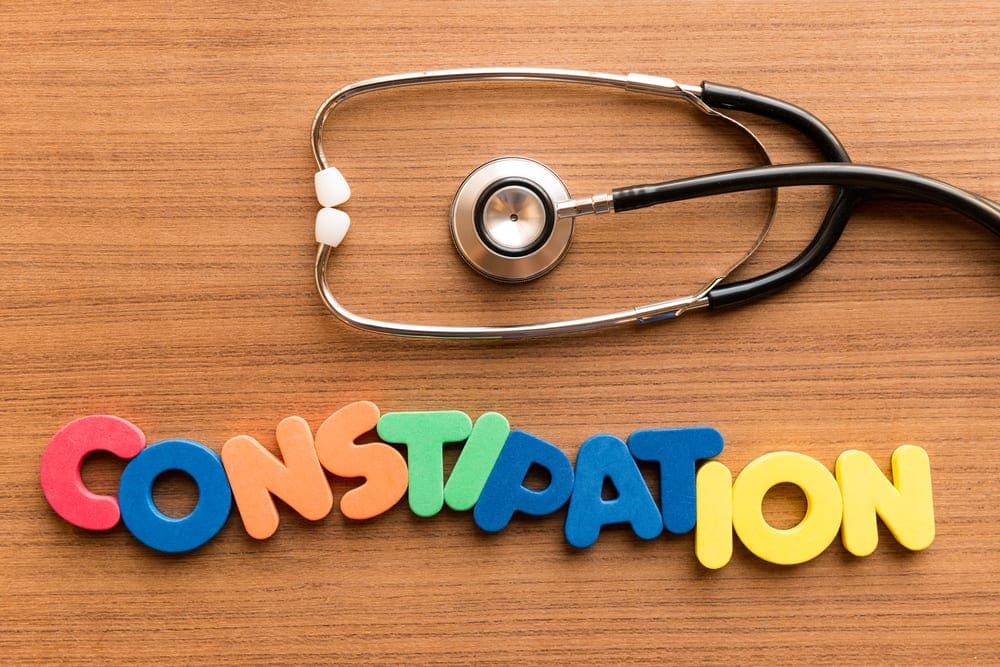
Conclusion
Understanding and addressing the root causes of constipation can lead to effective relief and improved gut health. By incorporating dietary changes, staying hydrated, managing stress, and maintaining an active lifestyle, most people can significantly reduce their risk of constipation.
FAQs
- What is considered chronic constipation? Chronic constipation is defined as experiencing constipation symptoms for several weeks or longer.
- Can constipation be a sign of a more serious condition? Yes, in some cases, constipation can indicate more serious health issues such as thyroid disorders or colorectal cancer.
- Are there any specific foods that are particularly good for relieving constipation? Foods high in fiber, such as berries, leafy greens, and whole grains, are particularly beneficial.
- How much exercise is needed to help with constipation? A moderate amount of daily exercise, such as 30 minutes of walking, can significantly improve symptoms.
- Can stress alone cause constipation? Yes, stress can impact digestive health and lead to constipation by affecting the gut-brain connection.

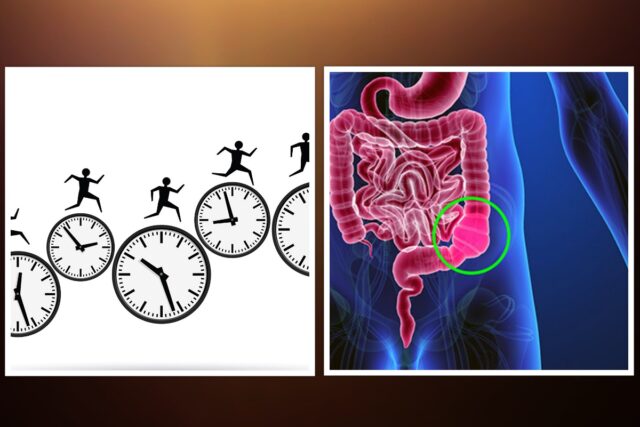
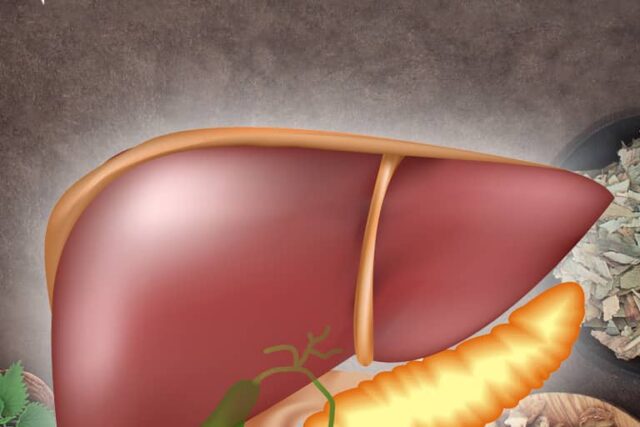
MOST COMMENTED
Animal-Based Proteins / Casein Protein / Dietary Protein / High-Protein Diets / Pea Protein / Plant-Based Proteins / Protein / Protein Deficiency / Protein Supplements / Proteins / Whey Protein / Whey Proteins
Is Protein Powder Safe for Teenagers and Children?
Animal-Based Proteins / Casein Protein / Dietary Protein / High-Protein Diets / Pea Protein / Plant-Based Proteins / Protein / Protein Deficiency / Protein Supplements / Proteins / Whey Protein / Whey Proteins
Unlock the Power of Proteins for Optimal Gut Health
Multivitamin
Total Health: Multivitamin for Active Lifestyles
Multivitamin
WellnessFusion: Complete Multivitamin Support
Dietary Supplement
Revitalize Your Health: The Magic of Red Yeast Rice Capsules
Foot care / Foot Health
Revitalize Your Foot Care Routine: Essential Tips for Optimal Foot Health
Foot Problem / Diabetics / Foot Health
Diabetics: Mastering Footwear Selection for Enhanced Foot Health and Ultimate Comfort
Exercises and Footwear Tips for Hammertoe Relief / Foot care / Foot Health / Foot Pain / Foot Problem / Hammertoes
Unlock Effective Exercises and Footwear Tips for Hammertoe Relief
Hammertoes / Foot Health / Foot Pain / Foot Problem
Unlock Relief: Essential Guide to Hammertoes Causes, Symptoms, and Treatments
Foot Problem / Foot Health
Revolutionize Your Recovery: Natural Remedies for Plantar Fasciitis – Fresh Home Keepers